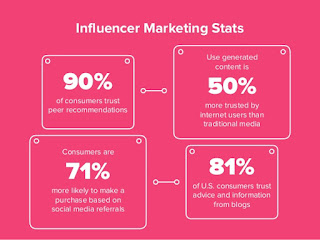Copywriting is the one of the most important jobs in marketing. But what is it exactly? Copywriting is the act of writing for advertising or publicity material. It sounds simple, but in truth, it is much more complicated than jotting down a tagline.
Copywriting requires creative strategy. It is estimated, that nine out of every ten businesses today utilize content marketing in tandem with their sales force to generate awareness and increase their profits. And the foundation of content marketing is good copywriting. With all the latest digital tools out there, like keywords for SEO, copywriting makes a significant difference on analytics tracking. So, what counts as 'good' copy?
Here's some advice on how to think like a successful copywriter:
1. Method acting-put yourself in the readers shoes. Get in the mindset of the consumer and your writing will improve.
2. Be inquisitive, like a child-it's important to maintain an outlook of curiosity and in most cases, keep things simple.
3. Research skills-regardless of your profession, research skills always come in handy. Educate yourself on the product or service you're trying to sell and build a strong foundation of research to assist you in your creative work.
4. Write for robots-remember when I mentioned SEO before? It's important to consider the platform your copy will go on, and the digital objectives it'll have.
5. Practice!-Write often and channel your inner copywriter. Keep it short and punchy.
Your copy goes a long way in terms of return. If your copy is dull or misses the mark, you'll see it in your sales report. Creative aspects of marketing campaigns are so important and must be treated as such. Never skimp on creative because in the long run, it'll cost you greatly.
References:
Dallman, Dean (Nov 2016) "Digital Copywriting in 2018: What You Need to Know", Red-Fern, Retrieved from: https://www.red-fern.co.uk/blog/insights/digital-copywriting-in-2017-what-you-need-to-know.html
McCoy, Julia (July, 2015) "The Power of Copywriting & Content Marketing Today (Case Study)", Express Writers, Retrieved from: https://expresswriters.com/the-power-of-copywriting-content-marketing-today-case-study/






